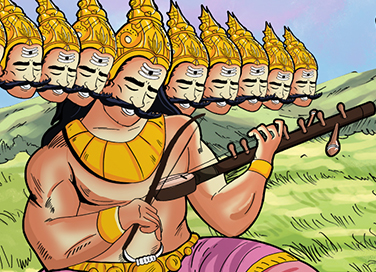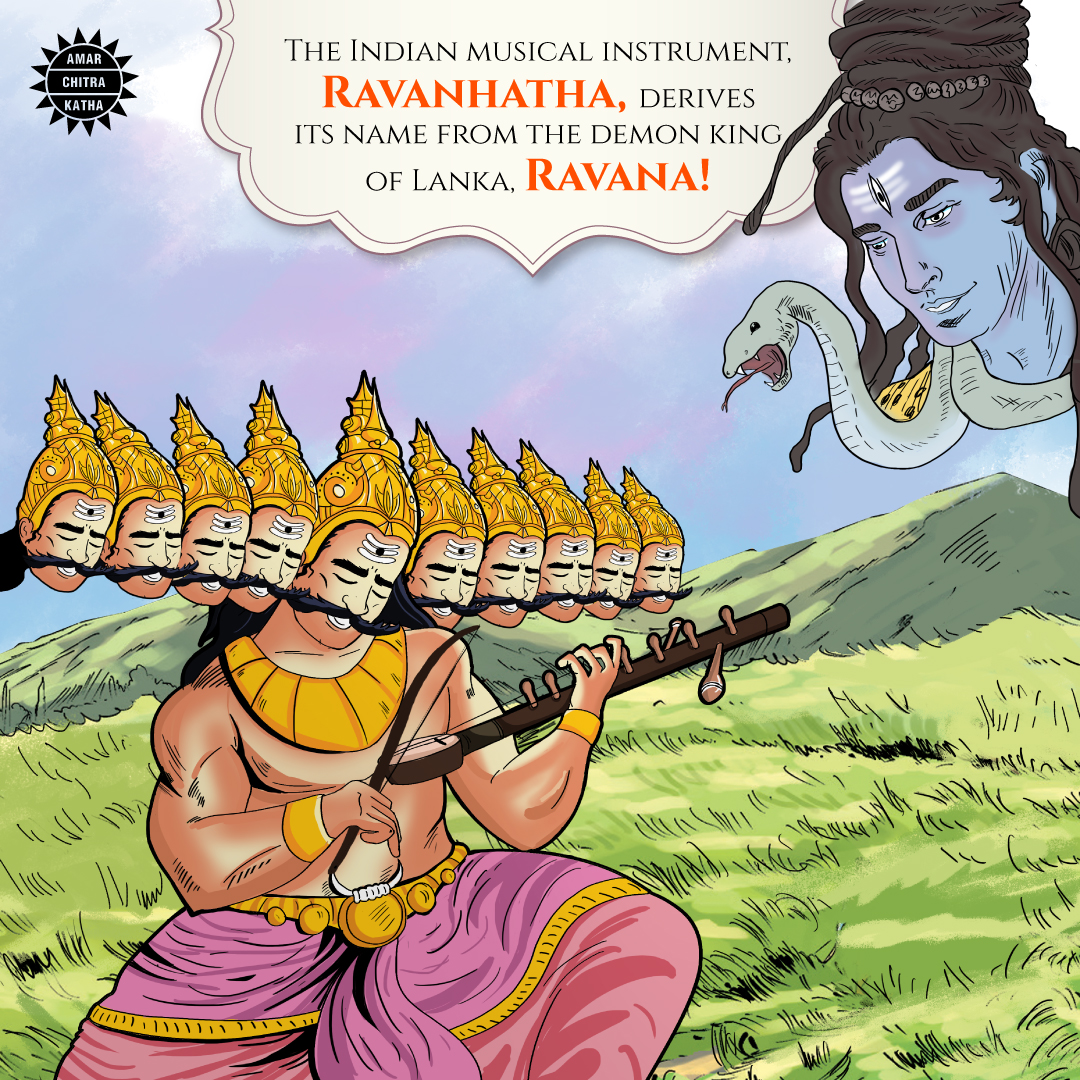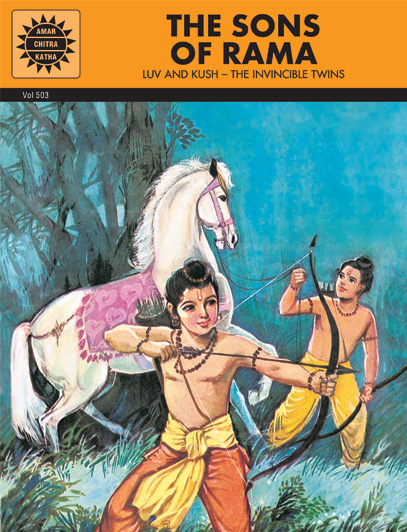What is a Ravanhatha?
- April 24, 2020


What is a Ravanhatha?
- April 24, 2020
Ravanhatha is a musical instrument made from bamboo attached to a coconut shell and covered with a goat membrane. The string is made up of horse hair, and is played using a wooden bow.

Believed to be the ancestor of the modern-day violin, the instrument Ravanhatha (Ravanstorm) is considered to be a modification of the word ‘Ravan Hasta Veena’. According to a folktale, Ravana, a great devotee of Shiva, played the Ravanhatha as an offering to the god. After Rama destroyed Ravana on the battlefield, Hanuman brought the Ravanhatha to India from Sri Lanka. Surprisingly though, there exist no records of the Ravanhatha in Sri Lanka. However, the instrument finds it’s mention in the early texts of India such as the musical treatise, Bharatabhasya, written by a scholar Nanyadeva.
To receive more such stories in your Inbox & WhatsApp, Please share your Email and Mobile number.
Even today, the Ravanhatha is popular among the wandering bards and folk musicians of Rajasthan and Gujarat. The instrument is played mostly by the Bhopas (priest singers) while narrating the folk tale of Pabuji, a hero of the local Rabari tribe, a shepherd community of Rajasthan. This is no ordinary storytelling, it is narrated frame by frame using Phad paintings, a live-action animation screening if you will.
To receive more such stories in your Inbox & WhatsApp, Please share your Email and Mobile number.

Comic of The Month
The Sons of Rama
The story of Rama and Sita was first set down by the sage Valmiki in his epic poem 'Ramayana.' Rama was the eldest son of Dasharatha, the king of Ayodhya, who had three wives - Kaushalya, Kaikeyi and Sumitra. Rama was the son of Kaushalya, Bharata of Kaikeyi and Laxmana and Shatrughna of Sumitra. The four princes grew up to be brave and valiant. Rama won the hand of Sita, the daughter of King Janaka. Dasharatha wanted to crown Rama as the king but Kaikeyi objected. Using boons granted to her by Dasharatha earlier, she had Rama banished to the forest. Sita and Laxmana decided to follow Rama. While in the forest, a Rakshasi, Shoorpanakha, accosted Laxmana but had her nose cut off by him. In revenge, her brother Ravana, king of Lanka, carried Sita away. Rama and Laxmana set out to look for her and with the help of an army of monkeys, defeated Ravana. On returning Ayodhya after fourteen years of exile, Rama banished Sita because of the suspicions of his subjects. In the ashrama of sage Valmiki, she gave birth to her twin sons, Luv and Kush.